One of the biggest challenges for modern homesteaders is the reliance on electricity and technology to run their daily operations. But what if suddenly there was no power? There are plenty of Amish powerless tools you should have ready for a world without power.
In a world without electricity, Amish communities have been thriving for centuries by using traditional tools and skills passed down from generation to generation.
Why Should I Use Amish Powerless Tools?
You should think about using Amish powerless tools because they’re built to last. Unlike modern power tools that often need repairs and new parts, these hand-crafted tools are extremely durable. Made from high-quality materials like hardwood, iron, and steel, they can handle heavy use for years.
Another advantage of using Amish powerless tools is their simplicity. They do not have complicated parts or engines that require fuel or electricity to function.
Related: 25 Powerless Appliances for Your Homestead Kitchen
They’re simple to use and maintain, even if you don’t have much experience with traditional tools. This makes them perfect for off-grid living since they don’t rely on any outside energy.
Besides being easy and tough, these hand-powered tools save money too. With no need for electricity or fuel, they cost way less to use than modern power tools.
Plus, without any electronic parts, you don’t have to worry about electrical surges or breakdowns.
Grain Mill
One of the most valuable Amish powerless tools is the hand-cranked grain mill. It lets you grind grains into flour using just human effort—no electricity needed. This makes it essential for making bread, a key food staple. Its compact, sturdy design means it fits easily into any kitchen or storage space.
Cider Presses
A cider press is used to crush apples and squeeze out the juice. It usually has a wooden barrel where apples go in, a crank-powered grinder to mash them, and a screw press to squeeze out the juice. Amish presses are built to last, often made from heavy-duty wood and cast iron.
You load in chopped apples, turn the crank to crush them, then press down to extract the juice. The juice can be drunk fresh, fermented into hard cider, or turned into vinegar. Since there’s no electricity involved, you can use it anywhere, anytime.
Wood-Burning Cook Stove
Another essential tool is the wood-burning cook stove. This stove not only provides warmth but also serves as a cooking surface for preparing meals. These stoves are made to spread heat well and make less smoke inside.
Cast Iron Cookware
Cast iron cookware lasts forever and works over any heat source—wood stoves, campfires, or gas burners. The Amish use cast iron skillets, Dutch ovens, and griddles because they heat evenly and retain heat for a long time.
With proper care, they get a natural non-stick surface called seasoning, which happens when oil is baked into the metal. A well-seasoned skillet can fry, bake, roast, or even make bread. Unlike modern non-stick pans, cast iron won’t scratch, chip, or wear out. Just keep it dry to prevent rust, and it’ll last for generations.
Oil Lamps & Lanterns
Before electricity, everyone used oil lamps and lanterns for light. Amish homes still rely on them, using kerosene, lamp oil, or even vegetable oil as fuel. Most lamps have a wick that soaks up oil and a glass chimney that protects the flame. Here’s how the Amish use their oil lamps.
Hurricane lanterns are a popular style because they’re portable and work well in wind or rain. They give off a warm, steady glow, making them great for power outages. Unlike battery-powered lights, oil lamps don’t rely on electricity, and as long as you have oil, you’ll always have light.
Water Pump
A handy tool to have is a manual water pump. When power outages or infrastructure issues limit access to clean water, having a reliable way to get water is critical.
The Amish have used manual pumps for generations. These pumps work by using a lever system to draw up groundwater with each pump motion.
Related: How To Make A Water Pump In Your Backyard
Hand Planes
Hand planes smooth and shape wood without sandpaper or power tools. They have a sharp blade set into a wooden or metal body, and when you push it across the wood, it shaves off thin layers. As one of the best Amish powerless tools, hand planes come in different types—jack planes for rough shaping, smoothing planes for finishing, and block planes for small detail work.
A good hand plane can turn rough lumber into furniture-quality wood with just some muscle and skill. With no moving parts except the blade, they last for generations and work just as well as power sanders—just quieter!
Kerosene Heater
For those who rely heavily on electricity for heating during colder months, an Amish-made kerosene heater may be an excellent alternative. They are ideal for small spaces such as cabins or tents and can provide sufficient heat to keep individuals warm during harsh winters.
Plows and Seeders
For agricultural purposes, manual farming equipment such as plows and seeders come in handy when there is no access to tractors or other motorized machinery. These simple yet effective tools ensure that crops can still be planted and harvested without relying on modern technology.
Braces & Augers
A brace and auger is one of the best Amish powerless tools for boring holes in wood. The brace is the U-shaped handle, and the auger bit is the spiral-shaped drill bit that cuts into the wood. You turn the brace in a circular motion, and the auger digs deep, clean holes.
Unlike modern drills, braces don’t need batteries or electricity, and they give you better control, especially for woodworking or furniture-making. The Amish prefer them because they’re reliable, quiet, and easy to repair. If you ever need to drill a hole without power, this is the best tool for the job.
Hand-Crank Grinders
A hand-crank grinder is a must-have for sharpening knives, axes, and tools without electricity. It works by spinning a grinding wheel as you turn the handle. Among the best Amish powerless tools, it helps keep farm tools, kitchen knives, and even saw blades razor-sharp. Some grinders have a stone wheel for sharpening and a wire brush wheel for removing rust.
Unlike electric grinders, these don’t overheat metal, which helps keep blades strong. They’re simple, reliable, and perfect for off-grid living. If you want sharp tools without relying on power, a hand-crank grinder is the way to go.
Plush Plow
One of the most popular is the push plow, also known as a wheel hoe. This tool consists of a wooden frame with a single wheel at the front and metal blades attached to it.
The user simply pushes the plow along rows of crops, allowing the blades to cut through weeds and loosen up soil. With this tool, there is no need for gas-powered tillers or weed whackers.
Scythe
This long-curved blade with handles on either end has been used for centuries to cut grass, wheat, and other crops by hand. It requires precision and skill but can be highly effective in maintaining gardens without any fuel or electricity. Among the best Amish powerless tools, it remains a reliable way to harvest and manage land off-grid.
Butter Churn
The butter churn is one of the classic symbols of Amish kitchens. It’s basically a wooden barrel or jar with a handle. By turning the handle by hand, you can turn cream into tasty homemade butter. What makes this tool great is how simple it is—no electricity or fancy parts are needed.
Besides being practical, the Amish appreciate how durable and long-lasting their kitchen tools are. Most are made from strong materials like wood, metal, and ceramic, built to handle heavy use and last for generations.
Dibbles
For tasks like planting seeds or moving seedlings, Amish gardeners use simple hand-held tools called dibbles. These are basically pointed sticks or metal rods with markings to show the right seed depth. They’re lightweight, easy to use, and work with just human effort—no power needed.
The Amish also rely on animals for heavier tasks. Horses often take the place of tractors for plowing fields, and oxen are used to pull carts full of crops.
It’s no surprise that the Amish tend to live longer, healthier lives than most Americans. They aren’t constantly surrounded by screens, chemicals, or processed food. Their way of life, grounded in hard work, clean eating, and natural remedies might seem old-fashioned, but it’s stood the test of time.
If you’ve ever wondered how they manage to live so simply and still thrive, Eddie Swartzentruber, who was born and raised in one of the strictest Old Order Amish communities, offers a rare, first-hand look into that world.
In his world, even battery-powered lights were forbidden. After leaving the Amish, he decided to preserve the knowledge he grew up with before it disappeared for good. And for the first time ever, someone who actually lived this life from the inside reveals the exact canning methods, healing salves, homegrown remedies, and survival strategies his people have relied on for hundreds of years.
This isn’t second-hand research. It’s real-life wisdom from someone who actually lived it all.
His book is available now—but only in limited quantities, since it’s printed in small batches to keep the quality true to its roots. If you’re lucky enough to get your hands on a copy, you’ll understand why this knowledge is too valuable to be lost.
👉 Click here to look inside the book, watch the short video, and see what it’s all about
Using Amish-style, hand-powered tools for homesteading means staying independent without electricity. These tools last a long time, work for farming, building, and cooking, and are simple to use. They help you learn to live off-grid and stay strong when times get tough.
The trick is to be prepared. While living without electricity can seem intimidating, following Amish practices can make off-grid living manageable.
What about you? Do you have or use any Amish powerless tools? Let us know in the comments below!
Survival Skills You Should Learn From The Amish
The “Secret” Amish Device That Turns Air Into Water (Video)
15 Gardening Mistakes You’re Making Right Now
Cut Down On Your Bills In 2024 With These Amish Projects
50 Tips From the Great Depression
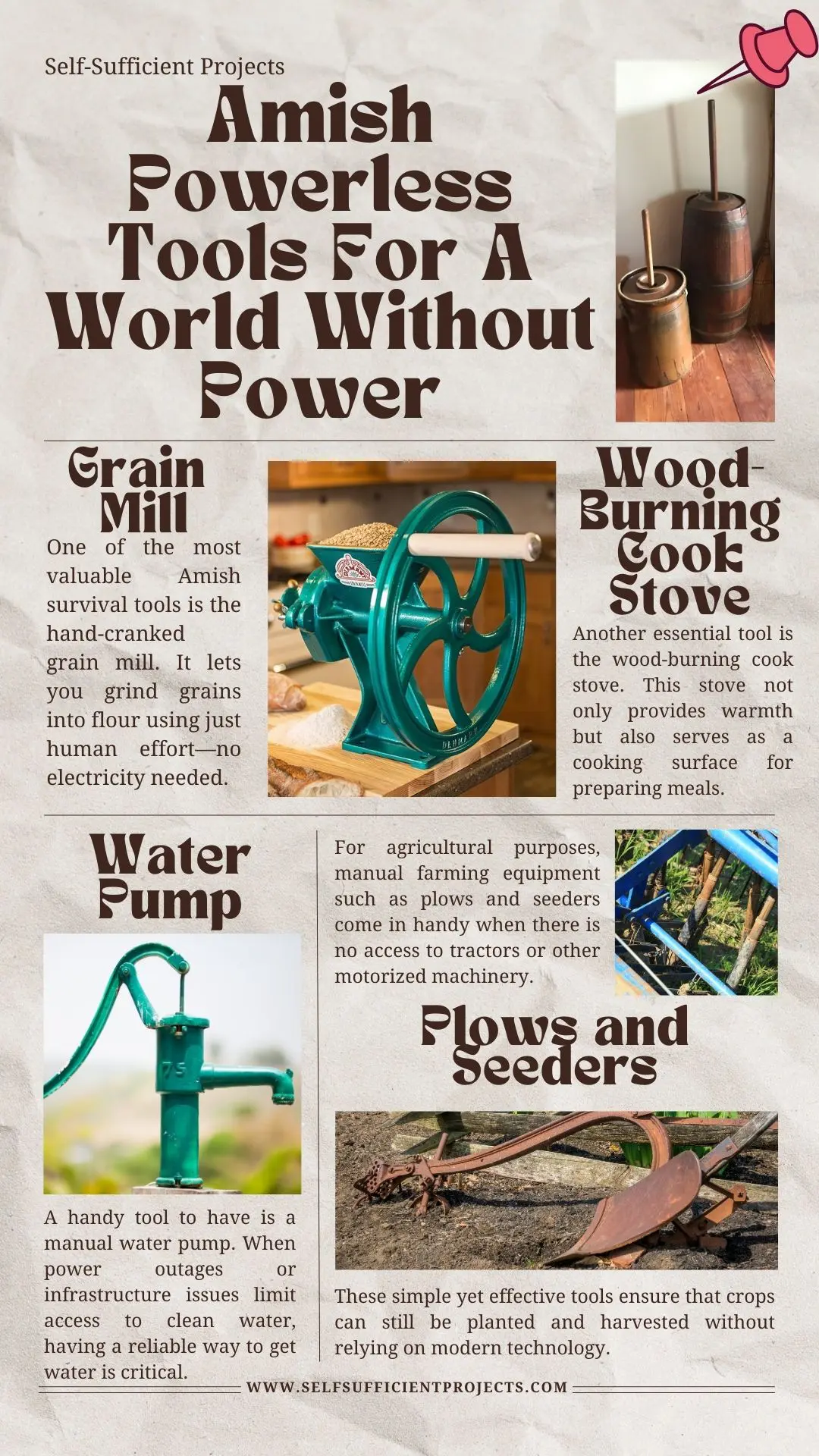

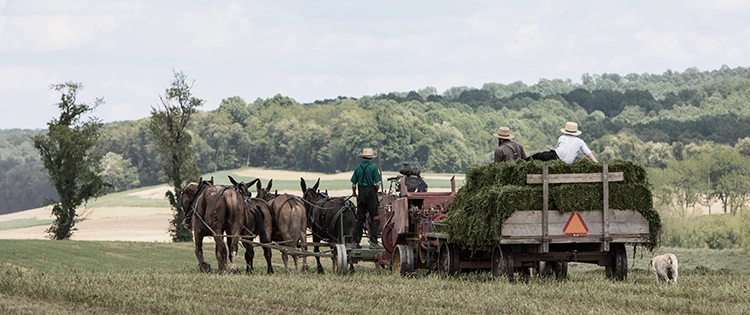
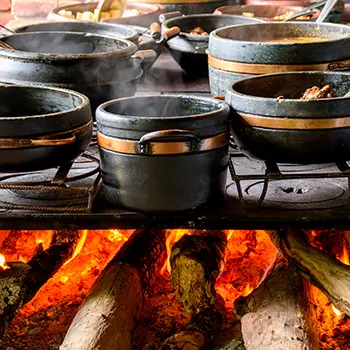
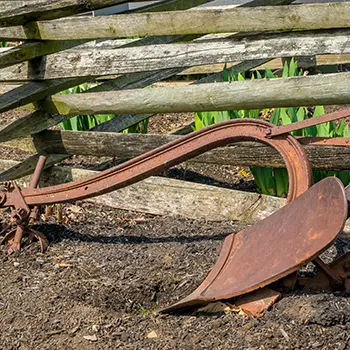
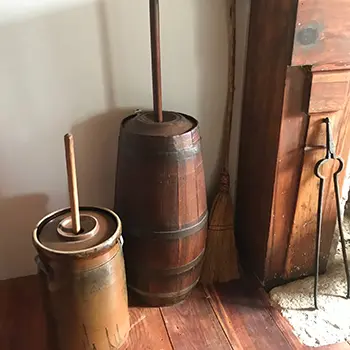
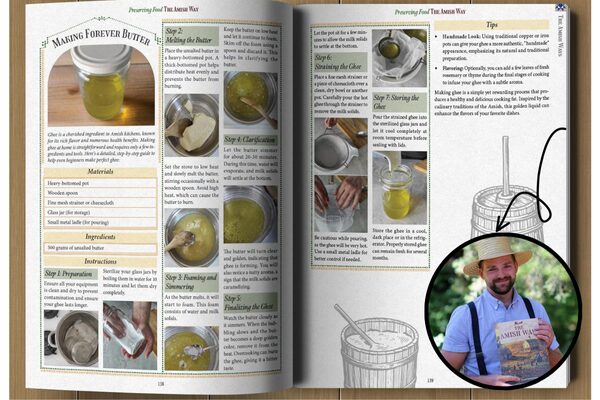


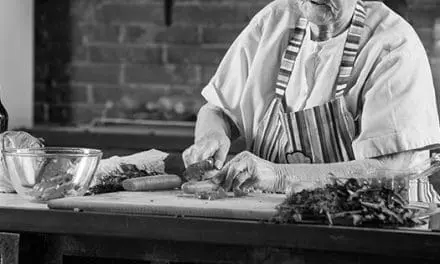


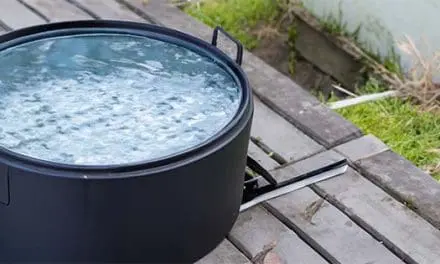







It’s a shame the Amish are so cruel to their horses and dump them at the kill pens once they’ve run them into the ground with ill-fitting equipment, beatings, whippings and lack of care.
And you know that this is fact or are you just spreading negative gossip.
Not all, the more regressive are less nice to their animals, those that still live in the early 1900’s.
Animals are treated like tools that are neglected,
Most of the Amish I have worked with in central WI are at least decent to them, however
horses still tend to get dumped if it’s too costly to fix their problems that are normally hoof/leg related.
It seems the more modern they are the better they treat their animals.
The Mennonite here are very good to their horses, it makes them look bad if their horses are in poor health.
How odd. Someone who has probably never owned a horse for everyday transportation and as a source of energy for food production (Hp) attempting to shame someone. Got to be a liberal in his mother’s basement whose probably hoping to win the lottery or his parent’s estate as an inheritance.
To borrow another stupid liberal individual’s phrase, “how dare you”!
Go make your bed and pick up your clothes,
Someone get this genius talking about liberals and inheritance but forgot their orange queen. 😆
The Amish take good care of their animals because they rely on them for their lifestile. Non Amish often pay the Amish to treat their pet livestock because of their knowledge.
My brother-in-law rescued a draft horse previously owned by the Amish. He had been treated badly & was in poor condition. Not saying all Amish do this but the rescue said it was fairly common.
As someone who is lives near Amish and buys thing off of. Amish treat their horses extremely well. Horses are their way to eat and a main source of travel. Maybe do some research.
Not the Amish where I am from ! I have physically drove by in the morning and she didn’t know I was coming up the drive way and she was out loving and and pating horse
You should not make such sweeping generalizations. You may have seen some examples like that, but to characterize all Amish that way is unjust, at best, potentially merely ignorant, or deliberately hostile. Amish, like everyone else, have good and bad among them. It’s like saying all people who leave comments on social media are negative and critical, just because some people are.
Its a work horse not a pet. Those horses are treated same as a horse in tracks, ‘Derby’. Cost matter for people. They are treated fair while in use. If you have a pet horse good for you.
Not true.
If you abuse a horse and have not bonded with it, the horses in front of the cart are not going to listen to you. If they had a middle finger they would flip it to you.
That can be very dangerous on crossings. In Europe we are still riding the horses in front of a coach.on public road. You have to have a coach(wo)mens drivers licence according the Achenbach system with insurance. Achenbach system is the safest
So moral of the story is don’t be Amish and self sufficient because it leads to inhumane treatment of animals – got it. I’m sorry what were we talking about?
I live around the Amish and there might be some Amish that treat their animals better than others but most Amish believe that an animal is just an animal it is there for a purpose and a purpose only once that purpose is served what they do with them I have no idea but around where I live we have Amish puppy mills what does that tell you
No animal should be mistreated or in mills. People mistreat old people and children, so mistreatment of animals is no surprise. GOD is watching.
Absolutely agree, how we treat the most vulnerable, whether animals, children, or the elderly, reflects our character as individuals and as a society. Tools and traditions like those shared in the article remind us of a simpler, more intentional way of life, but it’s our compassion and ethics that give real value to that lifestyle. You’re right, nothing goes unseen, and kindness matters more than ever in a world that too often forgets it.
Nobody with any sense is going to abuse an absolutely required tool like a valuable work horse. My wifes grandfather in Nova Scotia, Canada worked 70 acres of his farm with Blond Belgium work horses. He didn’t own a tractor. We would visit and I became a field hand. I have spent many days walking behind a plow. Then back to the barn to water, feed and brush the horse. I learned to drive the horses as a team and the same with a pair of oxen. If I had abused the animals in any way, the old man would have buried me somewhere in the back pasture. Farmers care for their livestock. Especially a work horse.